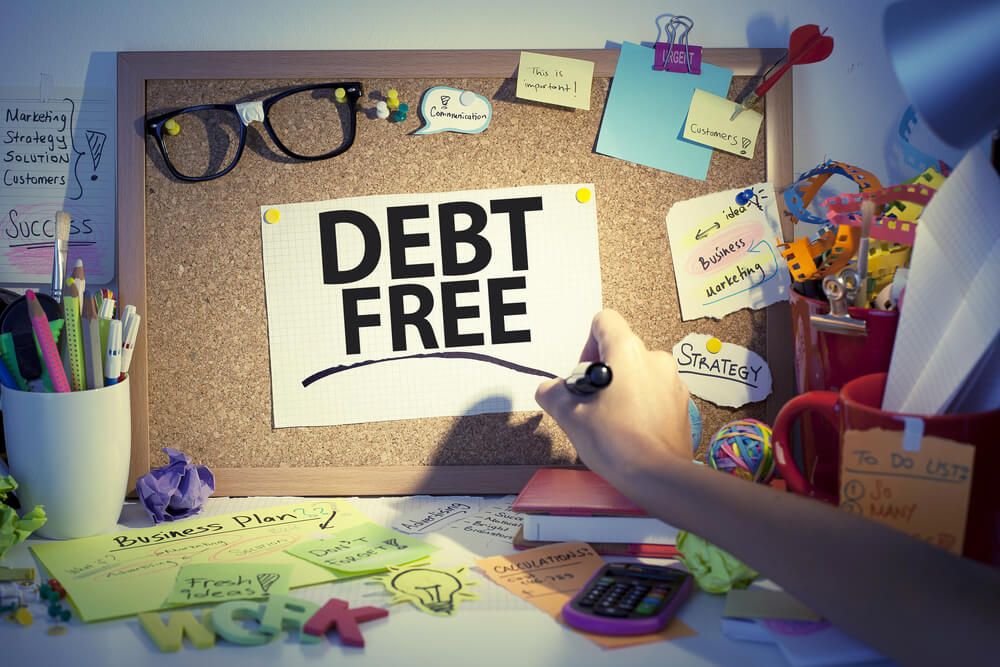

Dealing with debt can be overwhelming, but there are proven strategies to help you regain financial freedom. Let’s explore this topic in more detail with Monkey Mart below. From creating a budget to negotiating with creditors, we’ll cover effective methods to tackle debt and improve your financial health. By implementing these techniques, you can take control of your finances and work towards a debt-free future.
The first step in getting out of debt is to fully understand your current financial situation. This involves taking a comprehensive look at all your debts, including credit card balances, personal loans, student loans, and any other outstanding financial obligations. Create a detailed list of each debt, noting the creditor, total amount owed, interest rate, and minimum monthly payment.
Once you have a clear picture of your debts, it’s essential to prioritize them. Generally, it’s wise to focus on high-interest debts first, as they cost you the most money over time. However, some people find it motivating to pay off smaller debts first for quick wins. Choose the approach that works best for you and your financial goals.
Next, examine your income and expenses. Track your spending for a month to get an accurate idea of where your money is going. This will help you identify areas where you can cut back and allocate more funds towards debt repayment. Look for non-essential expenses that can be reduced or eliminated, such as dining out, subscription services, or entertainment costs.
With a clear understanding of your debt and spending habits, it’s time to create a solid debt repayment plan. There are several proven methods to consider:
The debt avalanche method involves focusing on paying off the debt with the highest interest rate first while making minimum payments on all other debts. This approach saves you the most money in interest over time. Once the highest-interest debt is paid off, move on to the next highest, and so on.
To implement this method, list your debts from highest to lowest interest rate. Allocate any extra money in your budget towards the highest-interest debt while maintaining minimum payments on the others. As you pay off each debt, roll the amount you were paying into the next highest-interest debt, creating a “snowball” effect that accelerates your debt repayment.
The debt snowball method focuses on paying off the smallest debt first, regardless of interest rate. This approach provides quick wins and psychological motivation as you see debts being eliminated. To use this method, list your debts from smallest to largest balance. Put any extra money towards the smallest debt while making minimum payments on the others. Once the smallest debt is paid off, move to the next smallest, and continue until all debts are cleared.
While this method may result in paying more interest over time compared to the avalanche method, it can be highly effective for those who need the motivation of seeing progress quickly. Choose the method that aligns best with your personality and financial goals.
Read more: Best Ways to Save Money on a Low Income
To accelerate your debt repayment, consider ways to increase your income and reduce expenses. Here are some strategies to explore:
Look for opportunities to earn extra money that can be dedicated to debt repayment. This could include:
. Taking on a part-time job or freelance work
. Selling items you no longer need
. Renting out a spare room or parking space
. Offering services like pet-sitting, tutoring, or consulting
. Asking for a raise or promotion at your current job
. Starting a side business based on your skills or interests
Every extra dollar earned can make a significant difference in your debt repayment journey. Be sure to allocate these additional funds directly towards your debt rather than increasing your lifestyle expenses.
Cutting costs is equally important in freeing up money for debt repayment. Consider these strategies:
. Review and cancel unnecessary subscriptions or memberships
. Cook meals at home instead of dining out
. Use public transportation or carpool to save on fuel costs
. Shop for better deals on insurance, phone plans, and other regular expenses
. Consider downsizing your living space or moving to a more affordable area
. Implement energy-saving measures to reduce utility bills
. Use coupons and look for sales when shopping for essentials
Remember, even small savings add up over time. Be creative and look for ways to reduce expenses without sacrificing your quality of life.
Don’t be afraid to reach out to your creditors to discuss your situation. Many are willing to work with you to find a solution that benefits both parties. Here are some options to consider:
Contact your credit card companies and ask if they can lower your interest rates. If you have a good payment history, they may be willing to reduce your rate, which can save you significant money over time. Be prepared to explain your situation and why you’re requesting a lower rate. If the first representative you speak with can’t help, ask to speak with a supervisor or the retention department.
If you’re experiencing financial hardship due to job loss, illness, or other circumstances, many creditors offer hardship programs. These may include temporary payment reductions, interest rate reductions, or fee waivers. Explain your situation honestly and ask about available options.
Debt consolidation involves combining multiple debts into a single loan or credit card with a lower interest rate. This can simplify your payments and potentially save you money on interest. Options for debt consolidation include:
. Personal loans: If you have good credit, you may qualify for a personal loan with a lower interest rate than your current debts.
. Balance transfer credit cards: These offer low or 0% introductory APR periods, allowing you to transfer high-interest debt and pay it off without accruing additional interest.
. Home equity loans or lines of credit: If you own a home, you may be able to use your equity to secure a loan with a lower interest rate.
Before choosing a debt consolidation option, carefully compare the terms, fees, and potential savings to ensure it’s the right choice for your situation.
Getting out of debt is just the first step. To maintain your financial health and prevent future debt, it’s crucial to develop good financial habits. Here are some key practices to implement:
A budget is a fundamental tool for managing your finances. Create a realistic budget that accounts for all your income and expenses. Categorize your spending and set limits for each category. Use budgeting apps or spreadsheets to track your progress and make adjustments as needed. Review your budget regularly and be willing to make changes as your financial situation evolves.
An emergency fund is essential for preventing future debt. Aim to save 3-6 months of living expenses in a separate savings account. Start small if necessary, but make consistent contributions. Having this safety net will help you avoid turning to credit cards or loans when unexpected expenses arise.
Develop a more conscious approach to spending. Before making purchases, especially large ones, ask yourself if it’s a need or a want. Consider implementing a waiting period for non-essential purchases to avoid impulse buying. Look for ways to enjoy life without overspending, such as finding free or low-cost activities in your community.
Continuously improve your financial literacy. Read books, follow reputable financial blogs, and consider taking courses on personal finance. The more you understand about managing money, investing, and financial planning, the better equipped you’ll be to make sound financial decisions.
Read more: Top 10 Personal Finance Apps to Save Money in 2025
Paying off debt is a long-term process that requires perseverance. Here are some strategies to stay motivated:
. Set small, achievable goals along the way to your larger debt-free goal
. Track your progress visually, such as with a debt thermometer or chart
. Celebrate milestones, even small ones, to acknowledge your hard work
. Find an accountability partner or join a debt-free community for support
. Remind yourself of the reasons why becoming debt-free is important to you
. Visualize your life after debt and the opportunities it will bring
Remember that setbacks are normal. If you face a financial challenge or slip up, don’t get discouraged. Reassess your plan, make necessary adjustments, and keep moving forward.